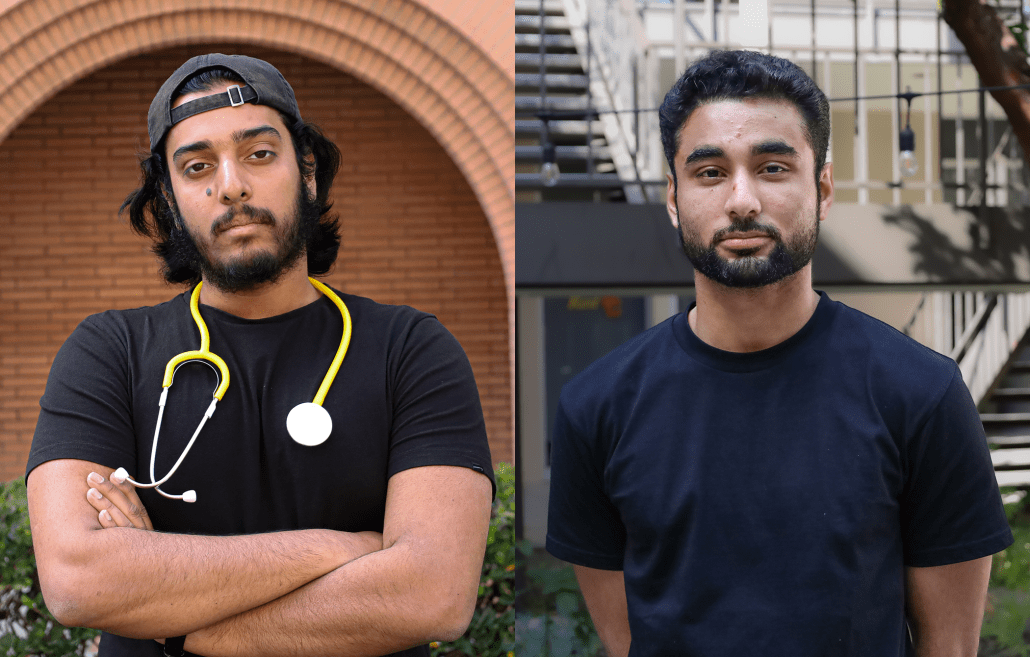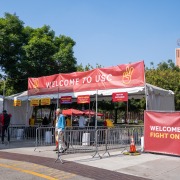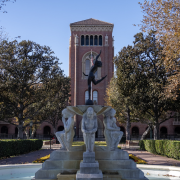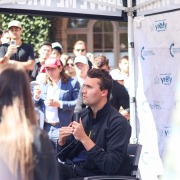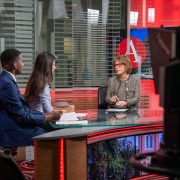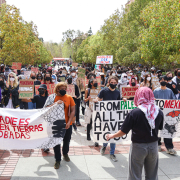Chaos engulfed UCLA’s campus late Tuesday night after at least 100 pro-Israel counter-protesters attacked student protesters at the university’s “Palestine Solidarity Encampment.” For three hours, both the Los Angeles Police Department and UCLA campus police stood watching as counter-protesters beat students and community members with metal poles, sprayed mace and tear gas at protesters, and launched fireworks into the encampment.
As footage of the violence spread online, one USC student decided to take action.
Daily headlines, sent straight to your inbox.
Subscribe to our newsletter to keep up with the latest at and around USC.
When Talha Rafique, a senior majoring in quantitative biology, learned that the drug stores in Westwood were “wiped out” of medical supplies, he posted a video to Instagram asking the USC community for help in buying more supplies to bring to the protesters.
“If you have the time, and if you have the money, I’m gonna put my Venmo on the next slide,” Rafique said in the video. “We’re gonna buy as many supplies as we can.”
In less than an hour, Rafique raised over $1,000.
After buying a full shopping cart of gauze, bandages, medical tape, hydrogen peroxide and saline, Rafique and his friend Badruddin Mahamed drove to UCLA, where they discovered campus administrators had still not sent in any emergency medical services to treat the injured students at the encampment.
“There were three or four medical students and one doctor [volunteering] on site, but there were zero ambulances, zero paramedics,” Rafique said in an interview with the Daily Trojan. “At one point, there were 20 to 30 people who were lying down because they got maced in the face.”
Seeing the lack of an official medical response was a shock to both Mahamed and Rafique.
“It just blew my mind how it could get so violent without an emphasis on the actual medical problem,” Rafique said. “UCLA should care about their students. They should care about their students’ health.”
Mahamed said he was particularly disheartened to see a school with access to so many medical resources fail to help students who were “in desperate need” of care.
“I was feeling just a breakdown of the emergency medical services system that is there to protect students — especially at a university campus that has a medical campus and a medical center so close by — seeing these people not being able to be well taken care of and having to rely on volunteers,” said Mahamed, a junior majoring in quantitative biology.
Mahamed, who is a certified emergency medical technician and a full-time emergency department technician, made use of his training to treat students with injuries at the encampment.
Throughout Tuesday night and into Wednesday morning, Mahamed helped flush mace and tear gas out of people’s eyes, disinfect cuts and bruises, and wrap people’s burn wounds. He also treated one student whose fingers were smashed with a wooden plank by temporarily immobilizing their fingers with medical tape. Mahamed did not finish treating students until 5 a.m.
Rafique, the director of media at a nonprofit called Gxza Health — an organization that works with the United Nations to provide telemedicine and medical aid to people in Gaza — said the scene at UCLA reminded him of how people have reacted to medical crises in Palestine.
“It’s almost the same way we’ve made people in Gaza lose their humanity. We don’t consider them as humans, which is why their numbers don’t matter, apparently, anymore,” Rafique said. “I feel like we’re turning our own students here, who are for the Palestinian cause, into random numbers that we don’t care about.”
Another student from USC, who spoke on condition of anonymity for fear of his safety, also went to help the student protesters at UCLA after he saw footage of the violence at the encampment. When he arrived at the protest, students asked for his help securing the encampment’s barricade to protect against the ongoing attacks from counter-protesters. Law enforcement on the scene were still not interfering to stop the violence.
The absence of law enforcement and emergency medical services at the scene marked “an abhorrent failure” by UCLA’s leadership, the student said.
“A university exists because of its students,” he said. “Despite its massive endowments, a university shouldn’t just act as a hedge fund for its investors. It should protect the students and allow them to learn in a safe environment.”
As of Thursday, Rafique has raised about $4,000 on Venmo, and has received thousands more in pledges. He drove back to UCLA Wednesday afternoon to drop off more supplies to the protesters — hours before the LAPD and California Highway Patrol swept the encampment later that night, appearing to shoot rubber bullets and ignite flash-bangs as they arrested more than 200 people. Rafique had said before that crackdown that the remaining money would go toward supplies for the encampments at USC and UCLA.

